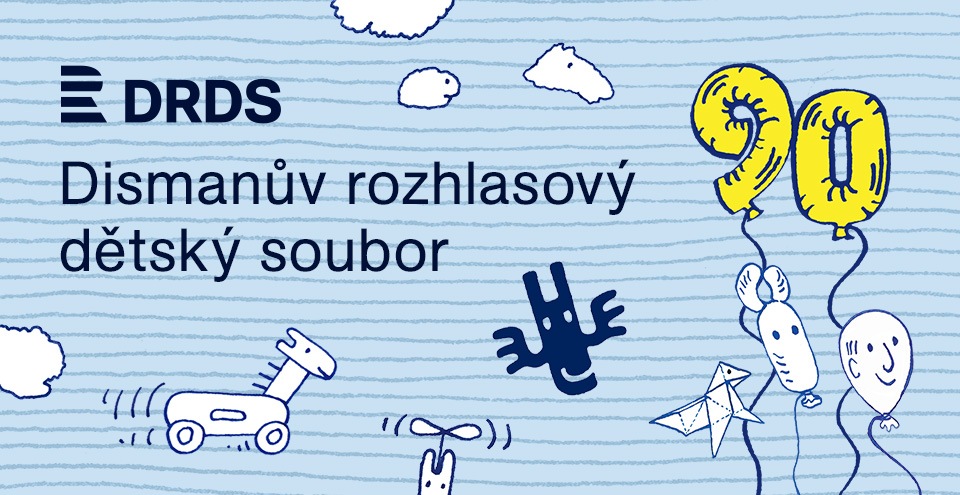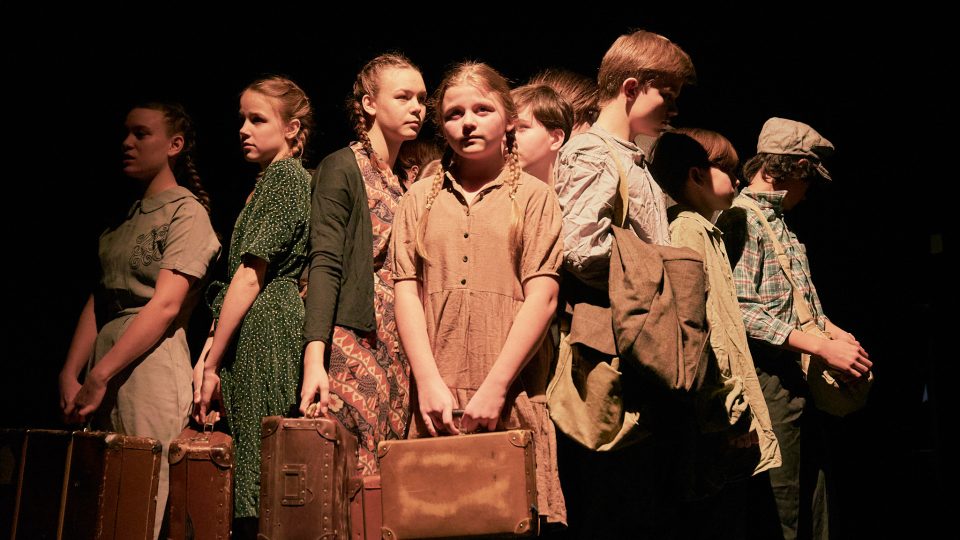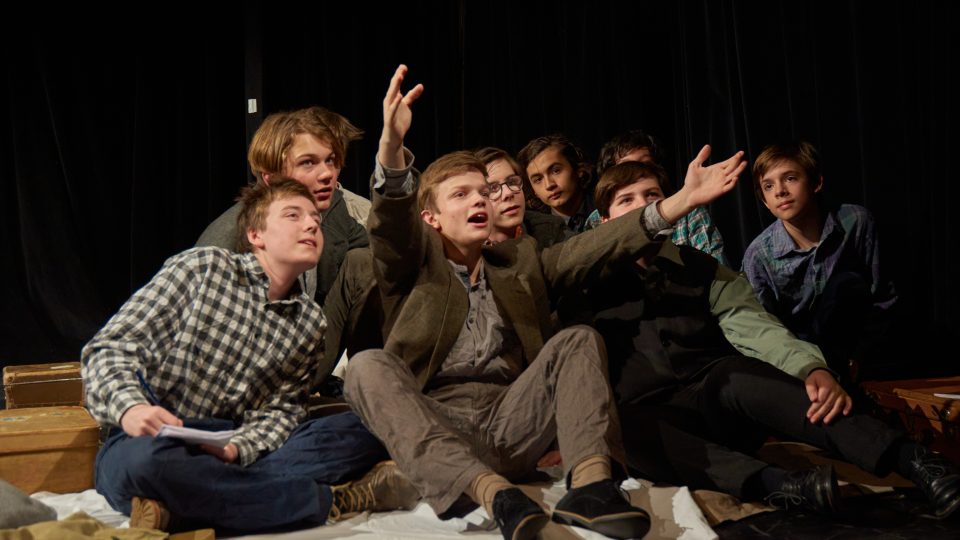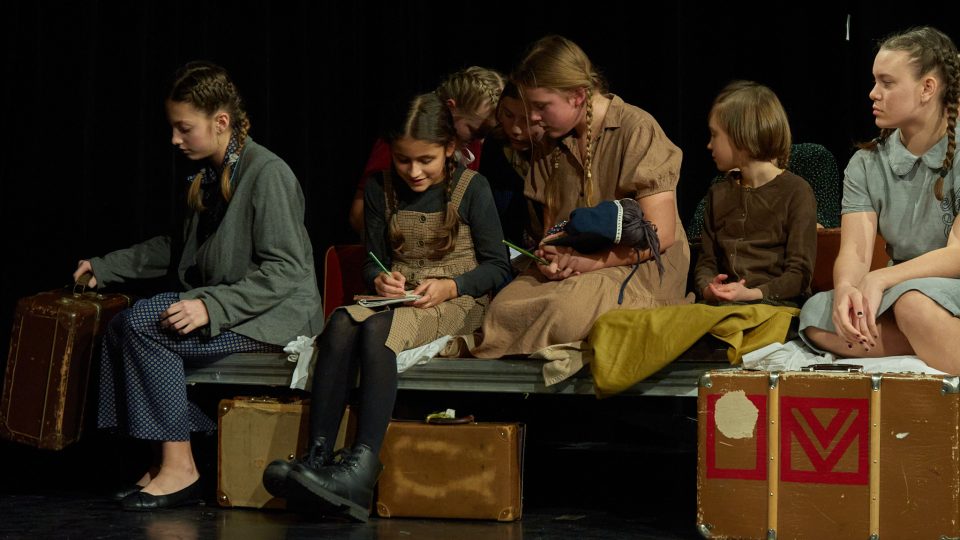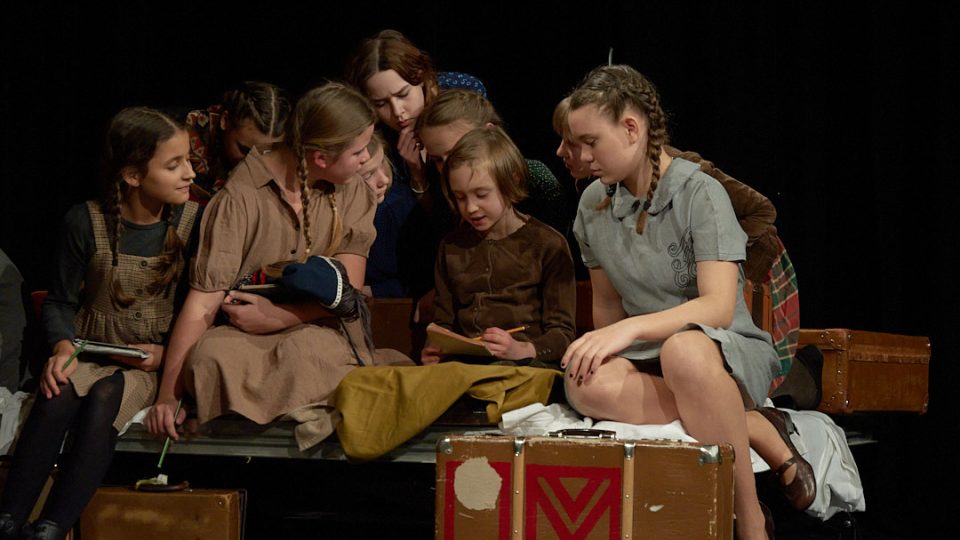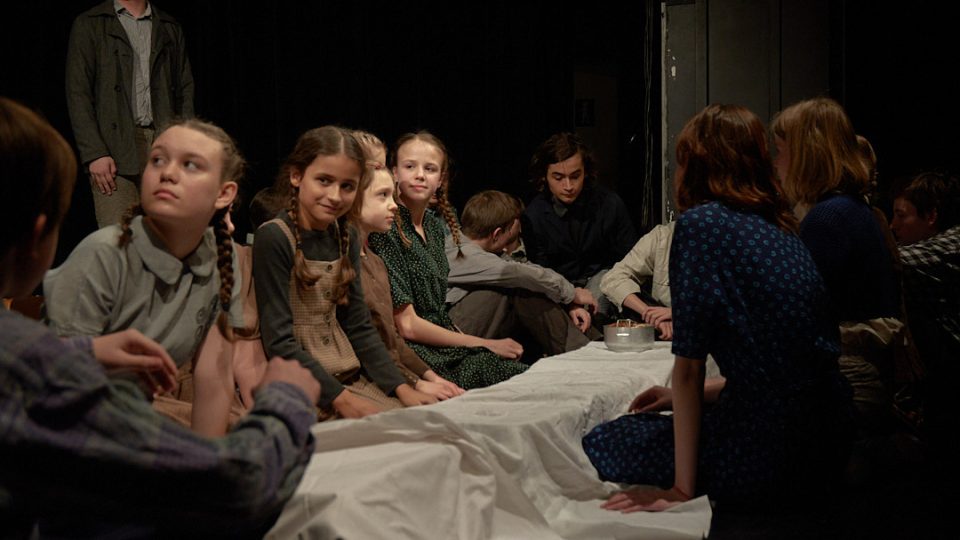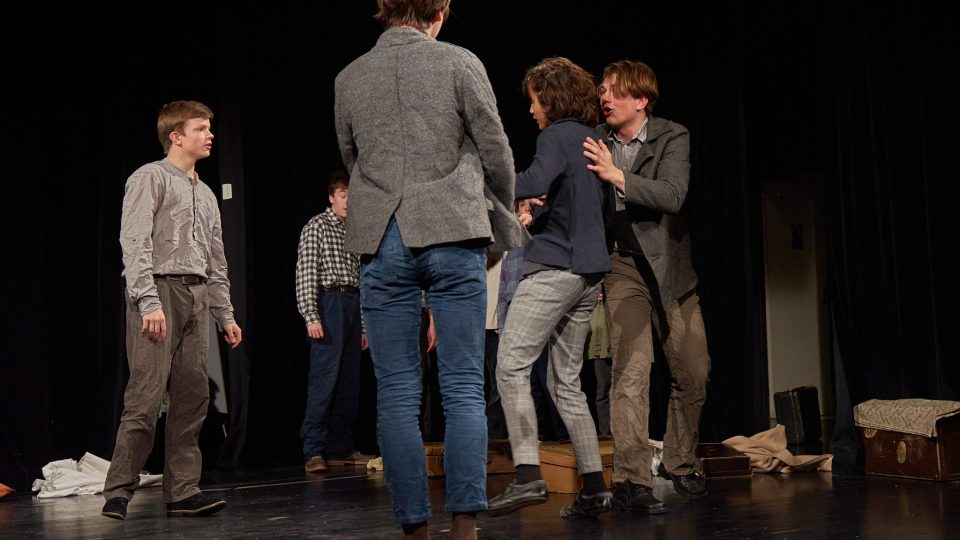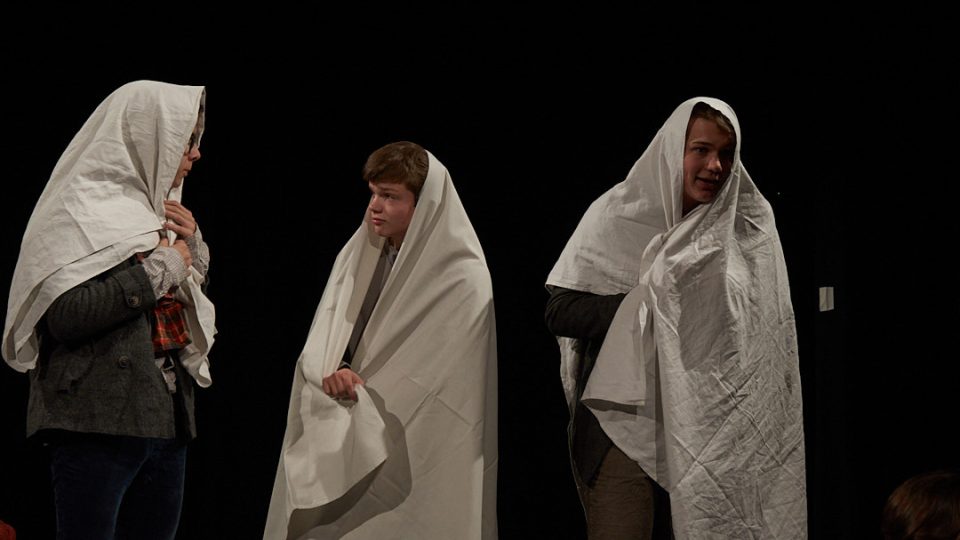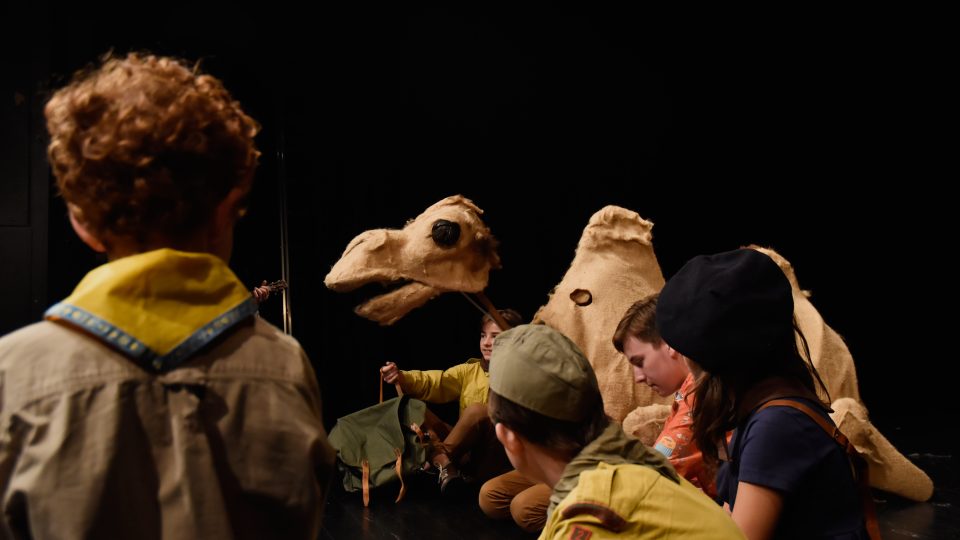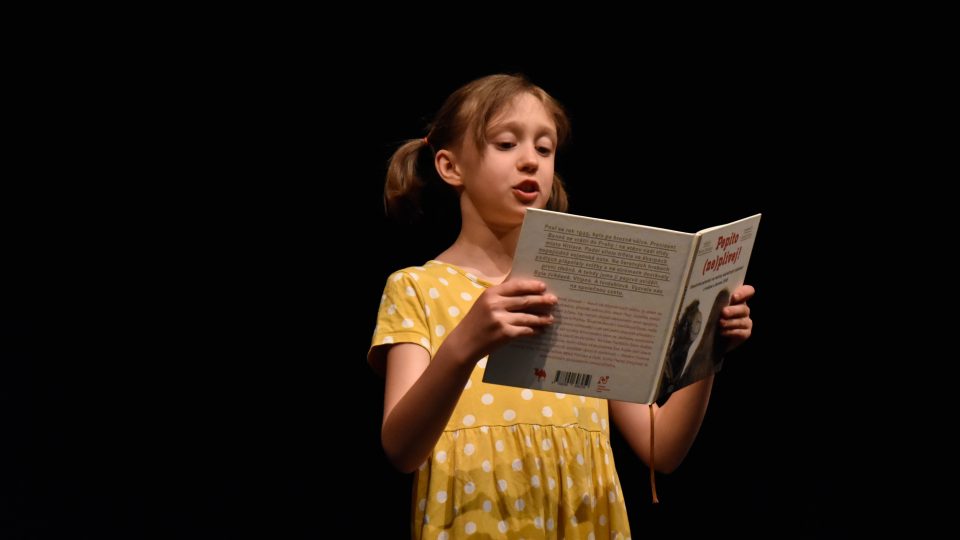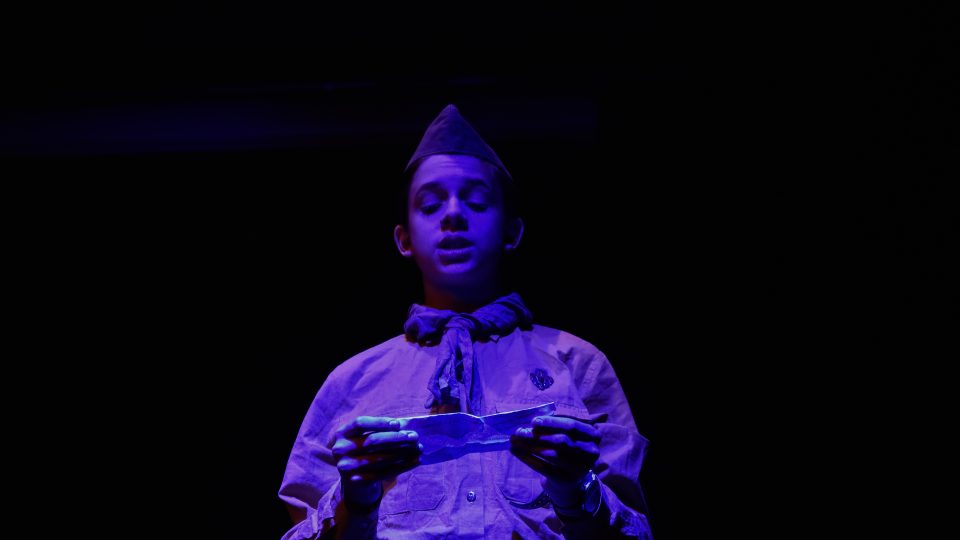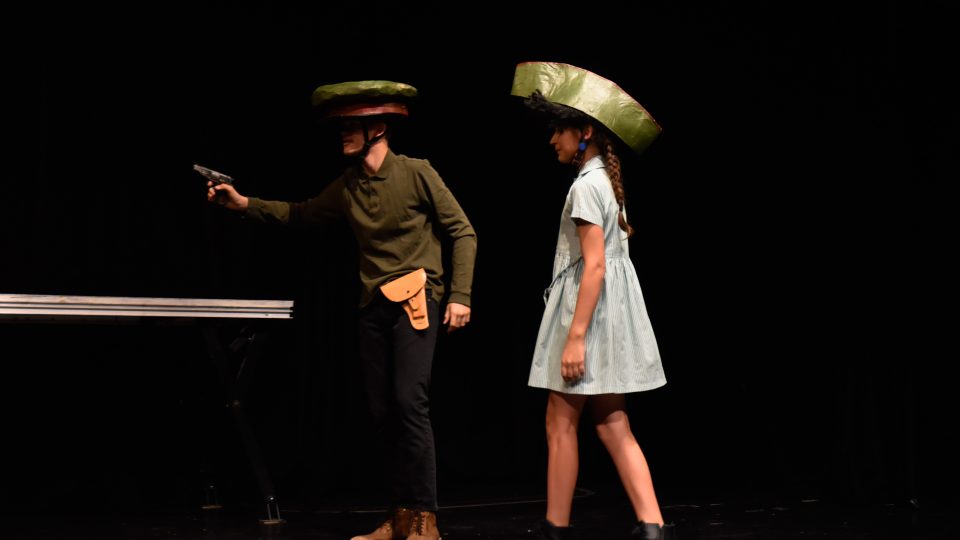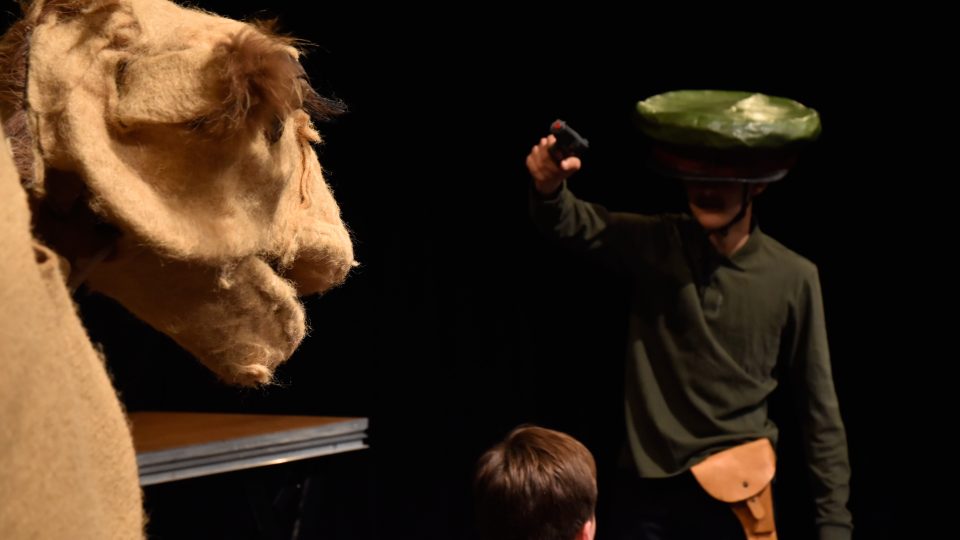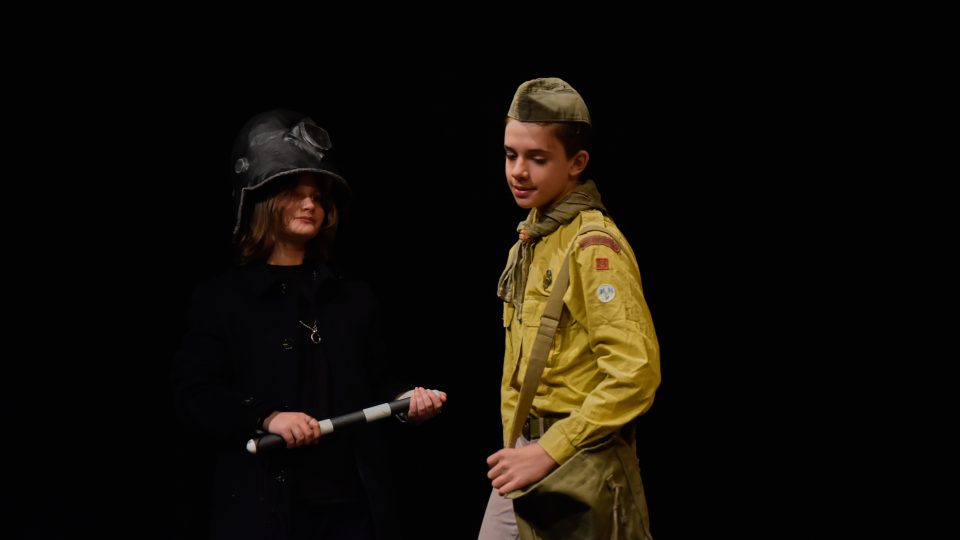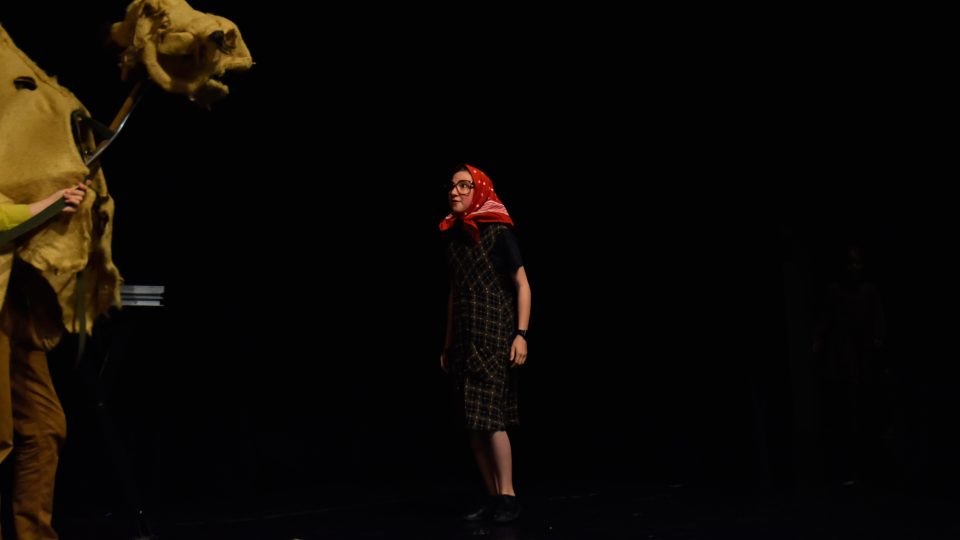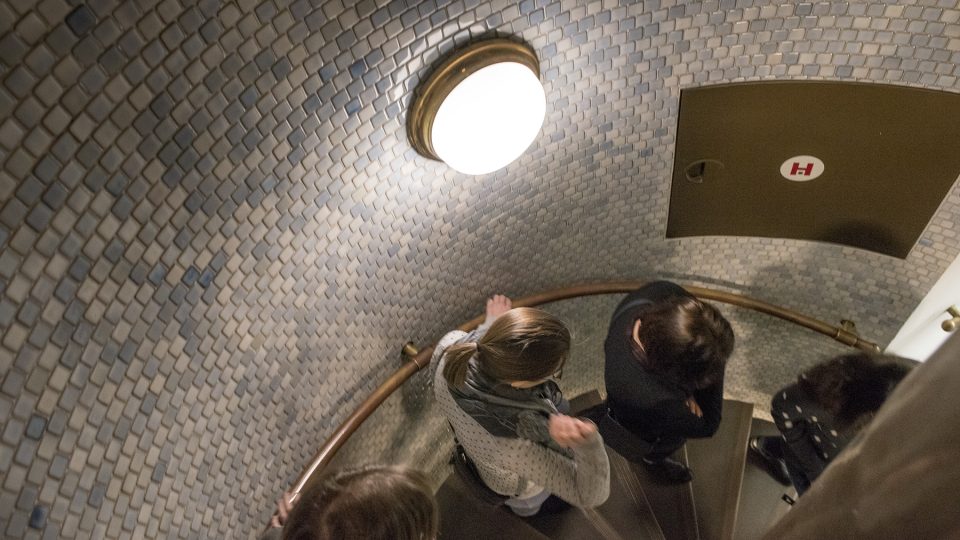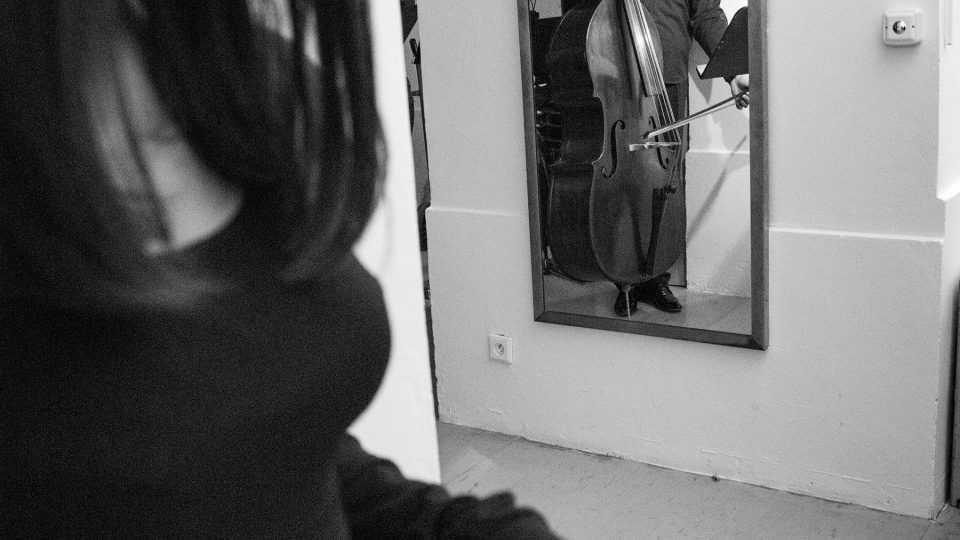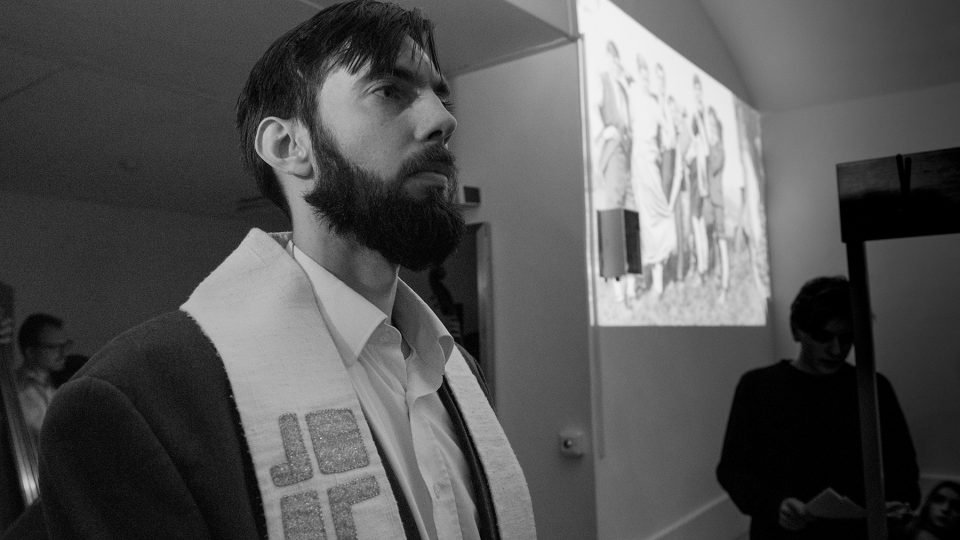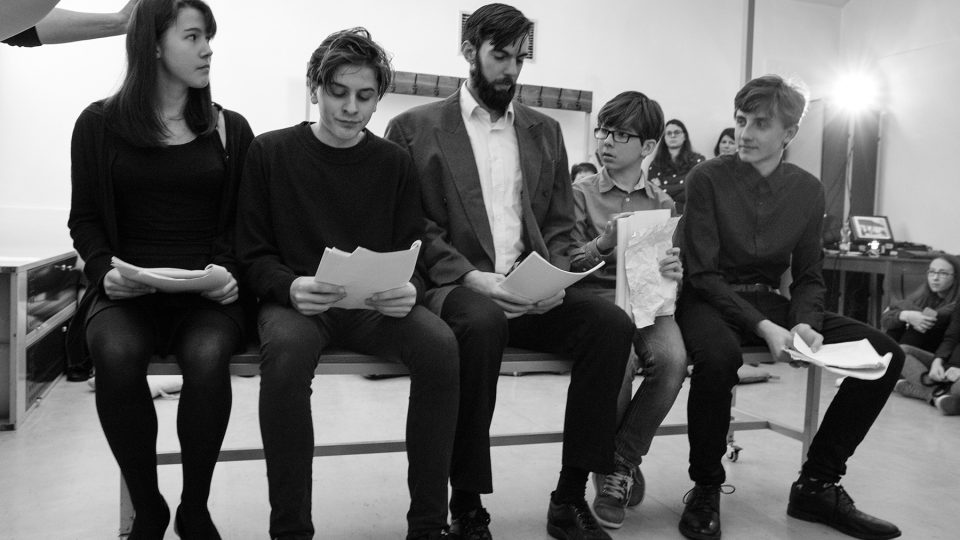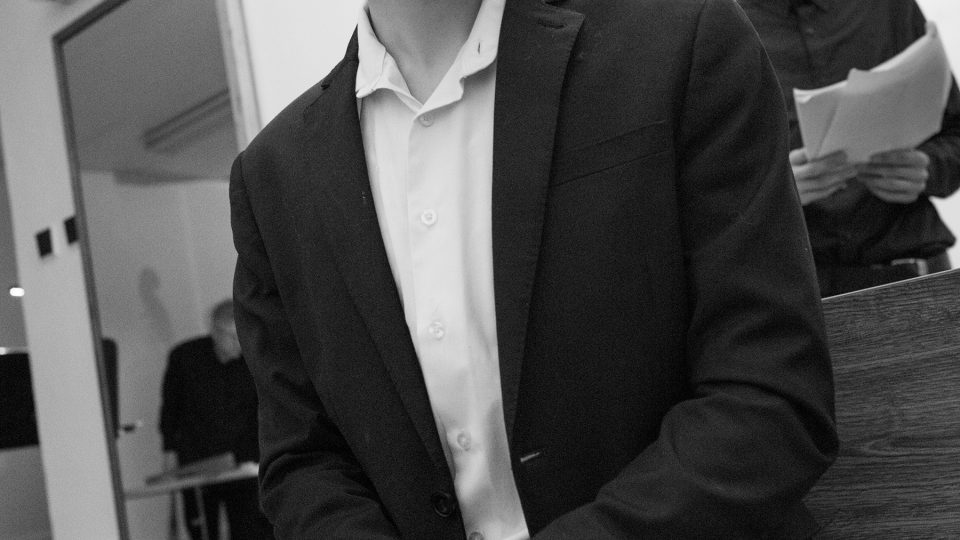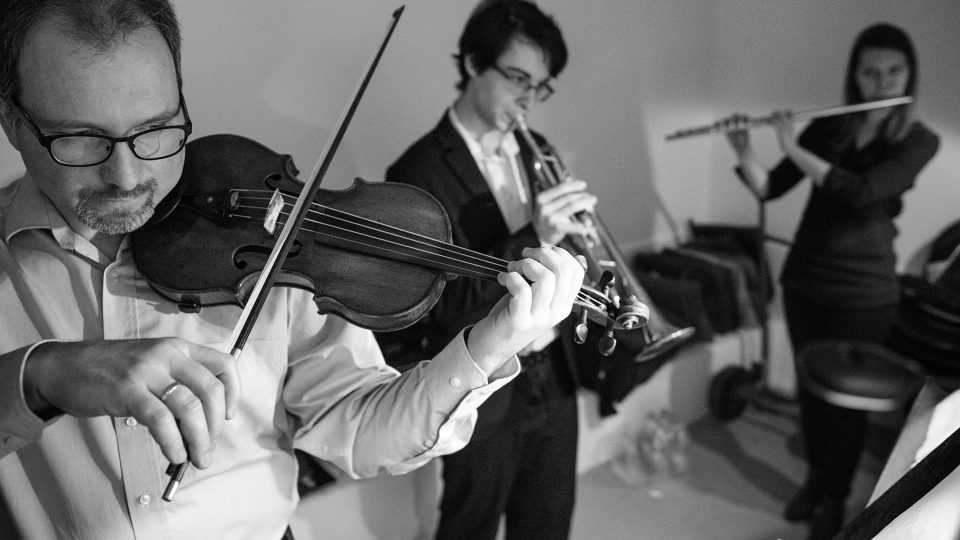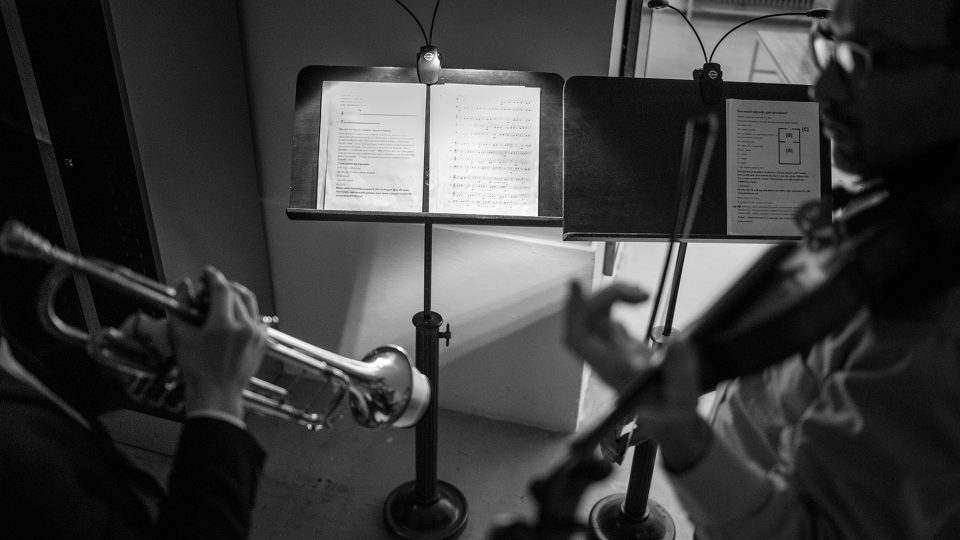The Disman Radio Children’s Ensemble bears the name of its founder, Miloslav Disman, a legendary educator and broadcaster.
About DRDS
The Disman Radio Children’s Ensemble bears the name of its founder, Miloslav Disman, a legendary educator and broadcaster. It has existed as part of Czech Radio (formerly Czechoslovak Radio) since 1935. The ensemble continues its work in the spirit of the Disman tradition, providing a comprehensive cultural education. The work of the ensemble is evenly divided between broadcasting and drama activities.
Children are given a diverse cultural upbringing. Through theatre performances, recording radio broadcasts and field trips, they examine the world around them.
They learn the fundamentals of acting and radio work: how to speak in public, how to move, how to work with a text, how to operate radio recording equipment, how to collaborate with others and many other skills. During rehearsals or reporting assignments, children are made to think about important issues, they gather information, formulate questions, and learn not to be afraid to ask them... And they learn to be prompt, communicative and respectful. Although most of our children do not go on to art school, they will apply these skills and experience in both their professional and personal lives.
The Disman Ensemble regularly stages performances both in Prague and on tour and participates in many cultural and charity events. Children record literary and radio dramas as well as feature reports from the field. Audio clips of their radio work can be found on our website and our Facebook page. The ensemble cooperates with a number of Prague and regional theatres, numerous art agencies, art schools, dubbing and television studios.
Contact
Alena Prevratilova (producer)
alena.prevratilova@rozhlas.cz
Josef Kanka (assistant, podcast editor)
josef.kanka@rozhlas.cz
Magdalena Gracerova-Chrzova (artistic director)
magdalena.gracerova@rozhlas.cz
Podcast
In 2022 Disman's radio ensemble launched the very first czech podcast hosted by children called Děti se ptají (Kids ask). It is released once in a month on the first Czech Radio program Radiožurnál. Our young journalists focus on topics they pick on their own and ask about everything what they do not understand in traditional media content. Their questions are answered by pundits, senior journalists or other experts. In previous episodes we covered for example presidential elextions, mental health or Russian invasion to Ukraine.
Repertoire
… a bolelo nebe (... And The Heavens Hurt)
Scenes from the lives of children interned during World War Two in Terezín. The play uses a collage of diaries, poems, letters and articles from magazines written by children in the camp, to give a picture of life in the Terezín ghetto.
Pepito, (ne)plivej! Do (not) Spit, Pepita!
The story of Pepita the camel, a play based on real events, was written for the Disman Ensemble by Miloš Doležal. “It was 1945, at the end of May, after a terrible war, and as Scouts, we were once again allowed to wear our Scout uniforms and meet in our clubhouses, which the Nazis had forbidden. And that’s when we saw her for the first time, in a forest clearing, in the Czech highlands. She was beautiful and mighty. Also curious, funny and stubborn. She beckoned us on a journey.” That’s how Vladimír Kolomý, alias Bubi, remembers it.
Join us on a two-hour journey from Havlíčkův Brod to Prague!
Kam zmizel můj strýc, pane presidente? (Where Has My Uncle Vanished, Mr. President? )
In this music and drama workshop, students follow in the footsteps of martyred priest Josef Toufar from the village of Číhošť. They will search for the meaning of heroism, truth, belief and sacrifice and examine what it means to overcome obstacles. Through the fate of the people touched by the so-called Číhošť miracle, they will get a glimpse of the political repression in Czechoslovakia of the 1950s.
We used to play...
Kam zmizela Rebarbora? (Where Has Rhubarb Gone?)
A play based on the book by Iva Procházková which plunges us into the world of a little girl named Rhubarb, who understands the speech of bats and knows whether the stars are singing sadly or cheerfully. She will try to save the world, which risks being swallowed up by a sea of bitterness, awash with people’s ugly memories. “I don’t know why people remember all the bad things that happen to them, while nice moments and good deeds are so quickly forgotten.”
Pohádka o Raškovi (Raška’s Fairy Tale)
Raška’s Fairy Tale was first published in 1974, six years after legendary Czech ski jumper Jiří Raška’s triumph at the Winter Olympics in Grenoble. It recounts the journey of a country boy from faraway Frenštát pod Radhoštěm, starting from his earliest childhood days, to losing his father at the age of 9, to his eventual ascent as an Olympic champion. Writer Ota Pavel described Raška’s winning ski jump like a poem: “It was a wonderful flight, in endless silence, lasting a short human age.”
Všehokniha (The Book of Everything)
“Thomas saw things that no one else saw. He did not know why this was, but it had always been so.” These are the first words of the play, based on a translation by Magda de Bruin Hüblová of the children’s book by Guus Kuijer. The story of little Thomas, who grows up in a family led by a prejudiced, tyrannical father, touches on the difficult topic of domestic violence. But it also speaks about courage, the desire for happiness and the power of friendship.
Český rok (A Czech Year)
What do you do if something falls into your eye? How do you charm your sweetheart? This performance is replete with folklore rhymes, traditional children’s games, proverbs and songs of folk poetry. From St. Matthew’s Day to the New Year, we run through all the seasons of the year, examining their traditional rituals and the customs of ordinary days and festive times.
Do velké krajiny Dudédu (Away To The Land of Dudédu)
In those days, some things were striped and some were spotted, some things were checkered, but all were devoid of color... Thus begins a fairy tale About Roosters, a Thunderstorm and a Rainbow, which the poet Ivan Martin Jirous (1944-2011) penned for his daughters Františka and Marta from prison. Jirous was a poet, art historian and critic, a signatory of Charter 77 and a leading figure of the Czech underground under Communism. The performance draws on his fairy tales, poems and letters.
Brundibár
Hans Krása’s children’s opera in two acts with a libretto by Adolf Hoffmeister, is a simple fairy tale with music easily appreciated by both children and adults. Despite the opera’s gentle and optimistic tone, it is a stark reminder of the tragic fate of the children who performed it in the Terezín ghetto.
The Czech Philharmonic Orchestra and The Disman Radio Children’s Ensemble

